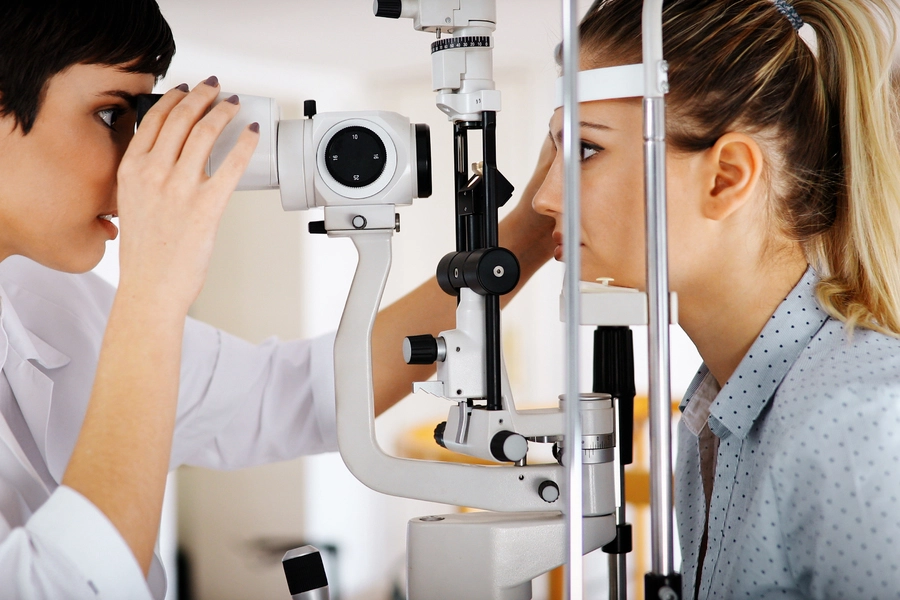
Presbyopia is an age-related eye condition that affects a person’s ability to focus on objects up close. The lens of the eye hardens and becomes less flexible, making text, images, and objects appear blurry up close. And nearly everyone over the age of 40 experiences some degree of presbyopia.
But that doesn’t mean it should affect you. We'll help you correct and treat your presbyopia so you can live your life to the fullest.
Causes - Presbyopia caused by aging and usually occurs in patients between the age of 45 and 65. It’s more common in those who spend a lot of time reading, sewing, or using their phone close to their face.
Symptoms - Though the symptoms of presbyopia will vary from person to person, the most common signs that you’re experiencing long-sightedness as a result of aging are:
Diagnosis - Presbyopia is diagnosed with a routine eye exam that includes a refraction assessment and general eye health analysis.
There is no cure for presbyopia. But with a custom treatment plan designed just for you, our optometrists can help you combat aging and improve your eye condition.
Over-the-Counter Glasses
Most patients start with over-the-counter (OTC) glasses or ready-made spectacles to improve their vision while reading, driving, or watching television. Though they may help initially and for mild cases, they’re not a comfortable long-term solution for dealing with presbyopia.
Prescription Glasses
Prescription glasses are the most common treatment option for presbyopia. Unlike OTC lenses, prescription glasses are personalized to your needs and condition. Our NZ optometrists can set you up with everyday prescription glasses and/or specific lenses for reading, using the computer, sewing, sports, and more.
Bifocal Lenses
Bifocal lenses contain two prescriptions in one lens, enabling you to focus on objects that are both far away and up close. Generally, patients switch to bifocal lenses as their condition progresses.
Contact Lenses
Contact lenses are a treatment option for presbyopia, but they have their limitations. Most patients opt to correct one eye for long-sightedness and the other for near-sightedness, also known as monovision. Though it enables patients to read and work, it impacts depth perception.
Newer contact lenses have the ability to correct both presbyopia and hyperopia with the same lens. The brain then selects the text or object it wants to focus on and filters out images at other distances.
LASIK Eye Surgery
There are several laser eye surgery treatments for presbyopia, though these are usually reserved for extreme cases or in those that are unable to wear glasses or contacts. The most effective option is Monovision LASIK, which produces similar results to the two-prescription contact lenses.
What is the best solution for correcting presbyopia?
The best solution for correcting presbyopia is some form of prescription lenses, though this will vary from patient to patient.
Can presbyopia be corrected naturally?
There is no way to reverse presbyopia but it can easily be cured with reading glasses. In most cases, these OTC glasses can help patients read, work, and operate machinery at a close distance.
What are the treatment options for presbyopia?
The treatment options for presbyopia include reading glasses, prescription lenses, bifocals, trifocals, contact lenses, and refractive laser eye surgery.
 Book An Eye Test
Book An Eye Test